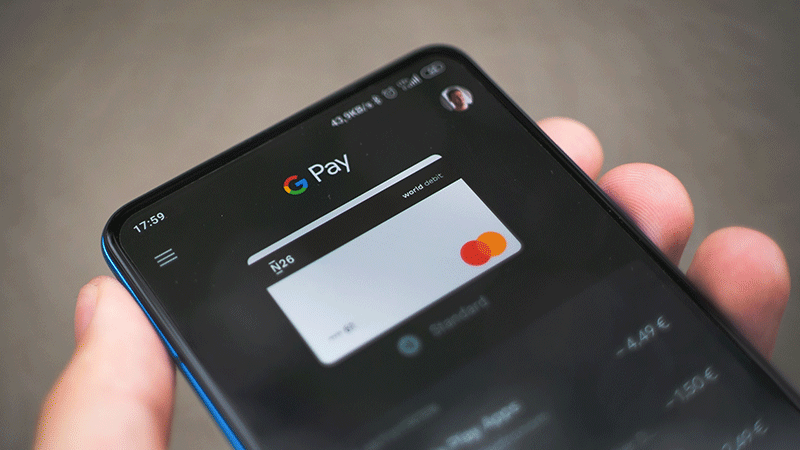BUILDING TRUST WITH CUSTOMERS IS ESSENTIAL FOR ANY E-COMMERCE BUSINESS. WITH CONSUMERS SPOILT FOR CHOICE WHEN SHOPPING ONLINE, PRESENTING AS A TRUSTWORTHY BUSINESS COULD BE THE REASON THEY CHOOSE TO PART WITH THEIR HARD-EARNED MONEY AT YOUR STORE OVER ANY OTHER. BUT BUILDING CUSTOMER TRUST AND LOYALTY TAKES PATIENCE AND CONSIDERATION. SENDING JUST ONE UNWANTED NEWSLETTER OR TAKING A LITTLE TOO LONG TO REPLY TO A QUERY COULD DAMAGE THE RELATIONSHIP FOR GOOD.
SO, HOW CAN YOUR BUSINESS GET IT RIGHT?
1. Look the part
Let’s start at your customers’ first stop: your e-commerce website. Your homepage has a huge impact on building trust with new customers. Invest in an SSL certificate for your business – it’s a digital certificate that authenticates a website's identity and enables an encrypted connection. Display it clearly on your homepage and throughout your website.
There are many great e-commerce platforms – Shopify, for example – which offer online sellers a selection of professional-looking store templates to choose from. And don’t forget the power of correct spelling and grammar in gaining customers’ confidence in your brand!
Our 22 golden rules of e-commerce will ensure you don’t lose customers at the first hurdle. Check it out and prepare to emerge as a top-tier online business!
2. Display lots of product information
A simple but effective step to build trust with customers. Include lots of high-res photos of your products, alongside detailed descriptions and specifications. It will reassure the customer they’re really buying what they think they’re buying.
3. Include customer testimonials
In a world of paid-for adverts and sponsored influencer posts, customer testimonials hold a lot of weight in their authenticity. It shows potential customers that “real” people have used your product/service and been impressed.
Invite feedback from customers (a discount on a future transaction is a good incentive to write a review, for example.) Put the best ones on your website in a prominent position. Bonus points if the reviewer lets you use a photo of them too!
4. Tap into the power of word of mouth
In a study of 9,000 global consumers1, 37% of them said they would most likely take a product recommendation from “everyday social media users” – that is, friends and family. “Celebrities” and “social media” stars ranked much further behind (7% and 6% respectively).
Reviews from friends and family are considered more genuine, so encourage customers to share photos of their purchases from your business on social media by providing a dedicated hashtag. You could also consider introducing a referral program – giving customers a discount if someone they recommend your brand to makes a purchase.
5. Be upfront about charges
There’s nothing that will break customers’ trust in your business faster than them feeling you’ve sneaked some extra fees in at checkout. In fact, “unexpected shipping costs” is the leading cause of cart abandonment online2.
So, if there are taxes, packing costs or shipping charges for customers to pay, be clear about this throughout their buying journey so that there are no nasty surprises at checkout.
6. Put a place to a name
Sometimes the online world can seem like an alternate universe, so it’s important to reassure your customers that there are real, ready-to-help people behind your digital presence. Make sure your “About Us” or “Contact Us” pages include credentials such as a contact number, email address and, ideally, an actual address.
7. Make social media a central part of your strategy
You can bet a large majority of your future customers will use social media to check your brand out. In fact, 87% of online buyers say they use social media to decide what to purchase3. Furthermore, 71% of consumers who have had a positive interaction with a brand on social media are likely to recommend the brand to family and friends4.
Your social media channels are your golden opportunity to tell your brand’s story, answer questions, and build trust with customers that’ll influence them to buy something from your online store.
A top tip is to track your tagged photos and reshare those of customers enjoying your products. These snapshots of genuine customers loving your products will have a big influence on others.
8. Treat customer service as King
Customer service is absolutely crucial to building trust with customers.
You should be available to respond to customers’ queries on as many channels as possible – including email and social media. Aim to respond to all questions, feedback and complaints within 24 hours.
Consider investing in live chat for your e-commerce website too. An expert on hand to answer a tricky question or solve a problem will reassure the customer your brand is legitimate and might just be the reason you secure the sale.
9. Demonstrate your knowledge
Depending on what you’re selling, it may be appropriate to include expert testimonials on your website. If your business sells make-up, why not include a video tutorial featuring a professional make-up artist demonstrating how to use your products? If you’re selling something particularly niche – such as guitar equipment – include plenty of in-depth “how-to” guides and a thorough “Frequently Asked Questions” section. It will show you know your stuff.
10. Be sensitive with data
When customers share their personal data with you, they’re trusting you to safeguard it. Include an easy-to-understand privacy policy on your website, including how your business is committed to adhering to GDPR rules.
When they register an account with your business, add a layer of security reassurance by asking them to verify their identity with an email confirmation.
Don’t send customers newsletters without prior consent, and if they have opted in to receive them, don’t overdo it – a monthly newsletter should be just and only that.
11. Reassure about payment
Fraud is a big concern for online consumers, no more so than the moment they’re asked to hand over credit card details at checkout.
Offer lots of payment options at checkout – this allows customers to choose one they are familiar with which adds another layer of reassurance. And paying via PayPal or digital wallet, for example, means they don’t have to hand over their credit cards directly to you.
You should invest heavily in protection for financial transactions through your online business and clearly display your security certificates.
12. Stick to your word
This is particularly important with delivery. If you’ve promised a customer Express shipping, they’re going to be very disappointed – and angry – if their order arrives late. Partnering with logistics expert DHL takes the worry out of this. You can guarantee your customers fast and time-definite deliveries, wherever they are in the world – with full tracking for extra piece of mind.
How can your business build customer trust?
Gaining your customers’ trust and loyalty is the key to your business’ long-term success. Just one bad experience could mean they’ll never return to your online store. The best strategy is to continually invest in your customer service: this is your channel to communicate with them on a human level which is how genuine relationships are created. Can you really put a price on that?
1 - Business2Community, October 2021
2 - Barilliance, July 2022
3 - Fashion Discounts, February 2022
4 - Lyfe Marketing, August 2019
























































